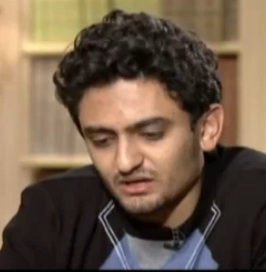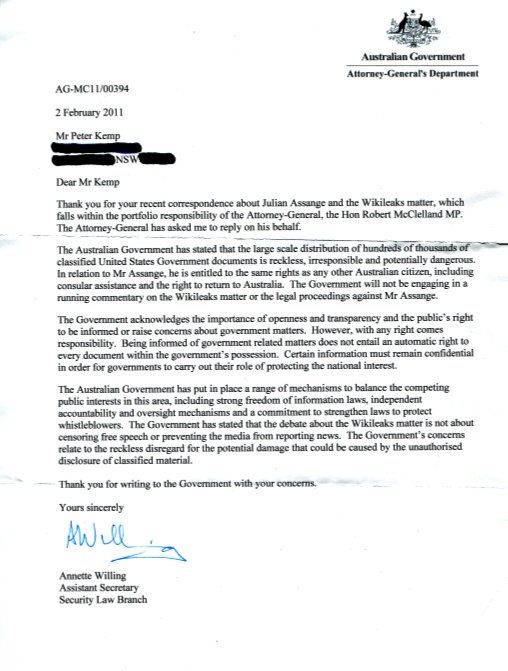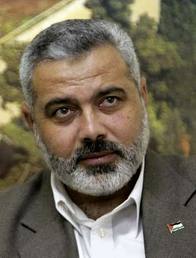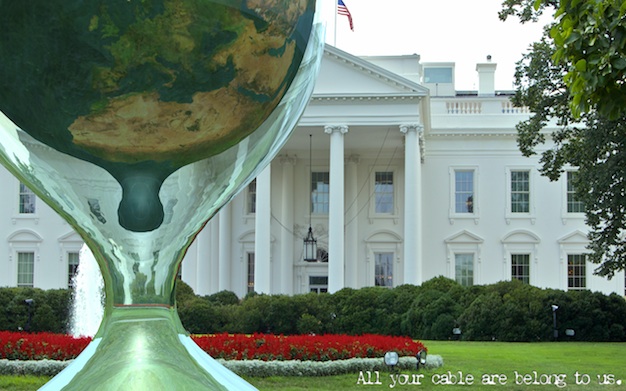Cable 08TELAVIV1984, released by Wikileaks today, is headlined at Uruknet "New Wikileaks cable shows 2008 war on Gaza was unprovoked: Israel knew Hamas was enforcing ceasefire" referring to the 2008 massacre that resulted in approximately 1,400 Palestinians killed in 22 days, an operation in which Israeli soldiers had orders to "cleanse" entire neighbourhoods, orders which they carried out. That is evident in the first part of the cable, where MOD Arab Affairs Adviser David Hacham, says Suleiman was keeping the pressure on Hamas, but the Israelis were frustrated at Hamas' 'stalling tactics' - Hamas was demanding Egyptian guarantees that Israel would not attack Gaza once Shalit was released. Regarding the Tahdiya, Hacham said Barak stressed that while it was not permanent, for the time being it was holding. There have been a number of violations of the ceasefire on the Gaza side, but Palestinian factions other than Hamas were responsible. Hacham said the Israelis assess that Hamas is making a serious effort to convince the other factions not to launch rockets or mortars.
The cable also returns to Egypt's anti-smuggling efforts, enforced by Israel and the US, and this time Israel has "decided to praise Egypt's performance publicly both in genuine acknowledgement of some improvements in destroying tunnels and in order to show the Egyptians that Israel was capable of praising as well as criticizing them. In private, however, Barak also pushed the Egyptians to do more, particularly in terms of stopping the smuggling well before the arms reach the Gaza border."
Today, Wikileaks released two more cables detailing Israeli pressure on the residents of Gaza Strip. As reported by WL Central here, the closure of tunnels bringing basic supplies into the Gaza Strip from Egypt have caused an urgent humanitarian crises for the people of Gaza. But US state cables show Israel pressuring the US to link aid to Egypt with the complete closure of those tunnels and the prevention of any supplies reaching Gaza through Egypt. Egypt's new vice president's involvement is also discussed.
In November of 2007, Israel Security Agency (ISA) Director Yuval Diskin met with US officials to discuss the 'problem' of supplies moving from Egypt to the Gaza Strip. In 07TELAVIV3258 Diskin outlines "a growing crisis in Israeli-Egyptian relations over smuggling across the Gaza border". Diskin told the US representatives that the ISA had, on several occasions, provided Omar Suleiman, Chief of Egyptian Intelligence Services, with detailed intelligence on the names of smugglers. In 2005, Diskin said he met personally with Suleiman in Egypt, at which time Suleiman promised personally to take responsibility for "cleansing the Sinai." Despite these promises, and Israeli offers to initiate joint operations, Diskin said Egypt has not acted to eliminate the smuggling networks. In Diskin's view, there is a core policy problem, in that the Egyptians view themselves as the primary mediator between the Israelis and Palestinians, and are careful not to alienate either side. "This is not possible with Hamas in Gaza," insisted Diskin.

For many in Tahrir Square, his presence was why they had come out February 8. Ghonim, who was released on February 7 by authorities, played a key role in organization demonstrations against the regime before being arrested in late January.
He was seized in the Egyptian capital when he was with tens of thousands of protesters in the Square. Al Jazeera reported Ghonim was "picked up by three plainclothes men on the street, pushed into a car and taken off for interrogation by state security members."
Ghonim has tried to minimize his role in the revolution. He said after his release, "Please don't make me a hero. I'm not a hero. I have been asleep for 12 days."
The Australian attorney general's response to an open letter to the Australian Prime Minister Julia Gillard re Julian Assange

 The Norwegian newspaper Aftenposten has published a set of cables that shed light on Omar Suleiman’s willingness to serve the interests of Israel. The man recently appointed as vice-president of Egypt, according to a cable from 2005, was willing to help former head of security in the Israeli Defense Ministry Amos Gilad by guaranteeing there would be no democratic elections in Gaza in 2006. He was also willing to help Israel better manage the Rafah crossing between Gaza and Egypt.
The Norwegian newspaper Aftenposten has published a set of cables that shed light on Omar Suleiman’s willingness to serve the interests of Israel. The man recently appointed as vice-president of Egypt, according to a cable from 2005, was willing to help former head of security in the Israeli Defense Ministry Amos Gilad by guaranteeing there would be no democratic elections in Gaza in 2006. He was also willing to help Israel better manage the Rafah crossing between Gaza and Egypt.
Cables released also reveal that a key motive for opposing Hamas was a fear that the Muslim Brotherhood would be emboldened. 05TELAVIV5864 details a meeting that Gilad wanted kept secret. Gilad talked about his fear of the Palestinian uprising movement Hamas, which was expected to get a large amount of the vote in the democratic elections in January 2006. Gilad was afraid that Hamas would win the election and that a Hamas win would "destroy everything."
From the Guardian's timeline, rewritten for chronology and with legal terminology:
The hearing opened with Clare Montgomery QC, for the Crown Prosecution Service on behalf of the Swedish authorities. Opening submissions are that the Swedish prosecutor, Marianne Ny, is asserted to be an issuing authority for the purposes of a European Arrest Warrant (EAW).
In relation to the offences, the court decides that the alleged victims are to be called Woman A (three counts of sexual assault alleged) and Woman B (one count of r*pe alleged)
Ms Montgomery says the matters are extraditable offences because the definitions in the two countries are the same. "Mr Assange had sexual intercourse with her and exploited the fact that she was asleep." This is submitted to be an offence under English law. In relation to Woman A there are three counts of sexual assault "without consent" and again contrary to English law.
 Hundreds of Hamas supporters in Gaza City protested in the streets on February 3 in support of the Eyptian revolutions and against Egypt's president Hosni Mubarak with the apparent tolerance or encouragement of the Hamas government. But later this week, a group of journalists and bloggers who organized their own protest had their protest broken up. Six women and eight men were arrested, and two of the women were beaten.
Hundreds of Hamas supporters in Gaza City protested in the streets on February 3 in support of the Eyptian revolutions and against Egypt's president Hosni Mubarak with the apparent tolerance or encouragement of the Hamas government. But later this week, a group of journalists and bloggers who organized their own protest had their protest broken up. Six women and eight men were arrested, and two of the women were beaten.
In Ramallah rallies were also broken up before they started. The Palestinian Authority police beat protesters with clubs and arrested two at a rally for Egypt in front of the Egyptian embassy on Sunday. "Our rally was simply in support of Egypt," one protester told Ma'an by phone, "we said nothing against the PA, we were not even out in the street." Earlier the same day, the Palestinian Authority had organized a rally in support of Mubarak which accused Egyptian opposition leader Mohammed El Baradei of being a CIA agent. The pro-Mubarak rally attracted a few dozen, the rally for the Egyptian people hundreds.
The rallies now appear to have changed from simply supporting Egypt to including calls for reform in Gaza. A Facebook page appeared on January 28 calling for a revolution in Gaza and naming February 11 a day of protest against the Hamas government. Four days later, another page was set up on Facebook, calling for a revolution in Ramallah and the ouster of President Mahmoud Abbas.
 The Telegraph: Israel's secret hotline to the man tipped to replace Mubarak
The Telegraph: Israel's secret hotline to the man tipped to replace Mubarak
"The new vice-president of Egypt, Omar Suleiman, is a long-standing favourite of Israel's who spoke daily to the Tel Aviv government via a secret "hotline" to Cairo, leaked documents disclose."
El País: Estados Unidos cree que nunca se sabrá si el expresidente chileno Eduardo Frei fue asesinado (The United States believe it will never be known if the Chilean ex-president Eduardo Frei was assassinated)
"El que fuera máximo mandatario entre 1964 y 1970 murió tras someterse a una operación rutinaria de hernia en la que contrajo una infección bacteriológica. (The one who was maximum leader of Chile between 1964 and 1970 died after a routine hernia surgery in which he got a bacteriologic infection.)"
El País: SCENESETTER FOR VISIT OF SPECIAL ENVOY MITCHELL TO DAMASCUS
 El País: El Arma es la Red (The Weapon is the Web)
El País: El Arma es la Red (The Weapon is the Web)
"Los papeles de Wikileaks revelan cómo los blogueros de Egipto iniciaron su rebelión en 2005, se inspiraron en la revuelta de Irán y usaron Facebook para enfrentarse a la dictadura. (The Wikileaks documents unveil how bloggers from Egypt started their insurrection in 2005, got inspired by the one in Iran and used Facebook to face the dictatorship.)"
El País: Guatemala's congress reinstates data protection: the end of the problem that refused to go away
"Guatemala's Congress passed legislation by an overwhelming majority to reinstate data protection for drugs and agrochemicals, paving the way for consideration of the CAFTA in the U.S. Congress. This was the end of a drama played out over years that was fraught with misinformation, conflict of interest, partisan politics, and a pronounced lack of decisiveness by top political leaders. It has consumed in aggregate more of our full-time attention than any other issue in recent months. Most of what follows has been reported in e-mails and, to a lesser extent, cables as we have moved from one operational crisis to the next. Here, we lay out more systematically the extent of the problem, the forces at play, and the efforts of many to succeed on an issue where the easy arguments lie on the other side."
El País: Next steps for Thailand's compulsory license bid
Julian Assange appears tomorrow, 7 February, at Westminster Magistrates Court for what has been announced as a two-day hearing, but judging from past extradition hearings in the UK, it is likely (with appeals) to take much longer, even a year or more, with the second-last word being that of the Supreme Court (formerly House of Lords) and then, under certain circumstances, the last word from the Home Secretary.
Readers should note that the procedure is not to judge the actual case on its merits as a criminal procedure but to judge it according to relevant sections of the UK Extradition Act. Such evidence of the alleged offences that has surfaced is only relevant indirectly, such as to prosecutorial abuses, not to the arguable merits of that evidence and a future case in Sweden if extradition occurs.
The Skeleton Argumentbegins with a challenge to prosecutor Ms Ny’s authority to issue an European Arrest Warrant (EAW). The case of Enander v. The Swedish National Police Board [2005] EWHC 3036 (Admin) is cited; it states that only the Swedish National Police Board is the authorised authority.
Context
Julian Assange was placed in international proceedings based on a European Arrest Warrant issued by Swedish prosecutors. European Union (EU) countries have a treaty that facilitates the process of a speedy extradition from one EU country to another, and beginning on Monday, February 7, a two-day hearing at Belmarsh Woolwich Crown Court in south London will determine whether Assange will be extradited from the UK to Sweden to face sex-crime accusations. He has been accused but has not been charged.
If Assange should lose, he will be extradited to Sweden unless he appeals the decision and wins. If he appeals, the appeal would be made to the Administrative Court, but it could be several months before it is heard. If that appeal is lost, an appeal to the Supreme Court is possible but not guaranteed. If a second appeal to the Supreme Court were to be made and lost, there is a third possibility, an appeal to the European Court of Human Rights in Strasbourg. Again, the possibility of a third appeal is not guaranteed.
Extradition from Sweden to US
Whatever happens in Sweden once Assange is extradited (on the hypothetical assumption that he will be), the US may indict him and have him "temporarily transferred," with Sweden's consent, so that he may face prosecution in the US. This can be done, legally, either before or after Assange undergoes trial in Sweden, according to the US/Sweden extradition treaty supplement (pdf) .
 El País: Objetivo: matar a Osama Bin Laden (The Goal: kill Osama Bin Laden)
El País: Objetivo: matar a Osama Bin Laden (The Goal: kill Osama Bin Laden)
"Arabia Saudí propuso unir las fuerzas de seis países para capturar o asesinar al jefe de Al Qaeda, según revelan documentos secretos del Departamento de Estado de EE UU. (Saudi Arabia proposed to unify the strength of six countries to capture or assassinate the chief of Al Qaeda, according to secret documents from the State Department of the United States.)"
The Telegraph: Why Scots want to stay in the Union
"Scotland would remain part of the United Kingdom for “a generation” because of the economic crisis, the then Scottish secretary told US officials."
The Telegraph: Zardari is a numbskull, British told Americans
"British officials described Asif Ali Zardari, the Pakistani president, as “highly corrupt” and a “numbskull”, according to leaked documents."
The Telegraph: Tony Blair's fees the talk of Beijing
"When senior diplomats met in Beijing to discuss the burning issues of the day, one topic seemed to exercise them as much as any other – the size of Tony Blair’s lecture fees."
Amidst reports from newspapers like the Telegraph that secretary general of the Arab League, Amr Moussa, might be someone who takes over for President Hosni Mubarak, it seems worthwhile to look at what released WikiLeaks cables reveal about the US perception of Moussa. The US has close ties with Egypt and gives much military aid to Egypt. Although the people in Egypt revolting against Mubarak have the upper hand right now, any leader appointed to lead Egypt would likely have some support from the US.
At least since 2006, the issue of who would succeed Mubarak has been a foremost issue for the US. And, as indicated by 09CAIRO874, the US has noted Moussa could be a possible candidate for taking over the presidency:
On January 20, WL Central reported "Bloomberg discloses FBI Contractor admits to Spying on Swedish".
Yesterday, Bloomberg reporter Michael Riley 're-drafts' his flawed article as a magazine story in Bloomberg Business Week.
On the day the original Bloomberg article appeared, Andy Greenberg of Forbes reported that he interviewed Robert Boback of Tiversa about the original Bloomberg article claims:
Poverty and repression under President Ali Abdullah Saleh’s government in Yemen has moved Yemenis to mount an uprising. The “Day of Rage” yesterday was another demonstration intended to force Saleh to resign.
News organizations like NPR have reported since the revolt in Tunisia that Saleh has “ordered income taxes slashed in half and instructed his government to control prices” and “deployed anti-riot police and soldiers to several key areas in the capital and its surroundings to prevent riots.” But those moves have not stopped protests from taking place.
As highlighted in a previous post, Saleh has brutally neglected the needs of his people. According to NPR, “Nearly half of Yemen's population live below the poverty line of $2 a day and doesn't have access to proper sanitation. Less then a tenth of the roads are paved. Tens of thousands have been displaced from their homes by conflict, flooding the cities.”
While Egyptians continue to maintain their uprising against President Hosni Mubarak with a “Day of Departure" today, it is worth looking at what happened in Yemen yesterday. An opposition coalition of Yemenis mobilized in defiance of a plea from President Ali Abdullah Saleh to not protest, rally or engage in any sit-ins, and held their own "Day of Rage."
The protests were considered to be the largest anti-government demonstration that Saleh has “faced in his 32-year rule.” The Guardian reported protesters chanted, “Together we fight against poverty, corruption and injustice.” Given what has been happening in Egypt, the protesters hoped to mobilize in their Tahrir Square, but the government “beat them” to the Square and sent “hundreds of tribesmen to camp out there overnight.”
Protesters called for Saleh to “form a new government” and “let the Yemeni people decide who will rule them in clean, fair elections.”
Today (Thursday, February 3) the Bradley Manning Support Network, an ad hoc, international grassroots effort to help Bradley Manning, the private accused of leaking classified information to WikiLeaks, is holding a National White House Call-in Day. The group says it is holding the Call-in Day because the Obama Administration has pretended not to know anything about the case.
Kevin Zeese, a leader with the group, spoke to WL Central about Manning and the Call-in Day.
"The reason we decided to go to the White House is Robert Gibbs was asked about Manning at a press conference and gave a kind of we don't know anything about it answer," explained Zeese.
A press release for the Call-in Day suggests the White House has no concern for "Bradley Manning's extreme confinement conditions, or the fact that recent pre-approved visitors of Bradley's have been detained and interrogated by military police in order to block their scheduled visit."
Zeese described the work of the network, explaining it started shortly after Manning was arrested and then detained about eight months ago. The group's first task was to "raise money for his legal defense, and thanks to tens of thousands of donors" the group raised around $125,000. Manning was able to choose the military lawyer he wanted to represent him, David E. Coombs.
The group's next task was to "generate support for Manning: when his conditions of confinement came out, that became a key issue." It was an opportunity for the group to discuss his case and make people consider whether he was a patriot or a traitor.
Israel Shamir's recent article on CounterPunch, Redacting Corruption: The Guardian's Political Censorship of Wikileaks, follows on from his previous piece, Paradigm in Belarus: The Minsk Election in a Wikileaks Mirror, in levelling some serious allegations against The Guardian newspaper and its journalistic practices.
The earlier piece was an odd amalgam of politically questionable apologism for the regime in Belarus and invective against The Guardian and the mainstream Western press, part of which provided valuable insight into the selection biases of newspapers (as I documented here) and part of which invoked conspiratorial motives that are unnecessary to explain those same selection biases.
Charges against The Guardian
The newest piece, published on January 11th, presents evidence that The Guardian has been engaging in strange redaction procedures on some of the cables it has been releasing, and infers from this that there is some foul play involved in The Guardian's editorial decisions. Because of Shamir's peculiar status, it is necessary to suject his claims to some scrutiny. As I will outline here, Shamir is mostly correct that The Guardian has been redacting the cables aggressively, and that the result of the redactions is, effectively, to conceal the correspondences of American diplomats writing candidly of a culture of corruption involving British corporations and high ranking officials in the former Soviet bloc. However, odious though this situation is, Shamir's inference to conspiracy or foul play in order to explain these redactions is, I believe, probably too quick.
Gaspar Llamazares, a Spanish politician and member of the Communist Party of Spain, is the focus of part of a recent cable released by WikiLeaks.
The cable from Madrid covers a meeting between Ambassador Solomont and Spanish Interior Minister Alfredo Perez Rubalcaba that touched on several topics including Haiti, Al Qaeda, training of security forces in Afghanistan and Iraq and Guantanamo detainees. It also featured a conversation on Llamazares, whose photo had days ago been reported to have been used by an FBI forensic artist “to create an age-processed image of Osama bin Laden" for a "Rewards for Justice" website featuring photos of most wanted terrorists.
From 10MADRID49 on January 18, 2010:
The conditions of Private Manning's confinement have been widely reported. Not surprisingly, on January 24, Amnesty International called on US authorities "to alleviate the harsh pre-trial detention conditions of Bradley Manning."
As we also reported here, Psychologists for Social Responsibility have joined the call for Manning's humane treatment in an open letter to Robert Gates, which calls upon him "to rectify the inhumane, harmful, and counterproductive treatment of PFC Bradley Manning immediately."
Amnesty International is now calling on British authorities to intervene on behalf of Private Manning on the basis that Manning may be a British citizen.
In a statement e-mailed to The Associated Press, Amnesty International's U.K. Director Kate Allen said Manning's background meant that British officials "should be demanding that the conditions of his detention are in line with international standards."
Manning is very likely, in fact, eligible for dual citizenship by law. Manning's status as a potential UK national was first reported here, where it is pointed out that his mother, Susan Manning, is a UK citizen, having been born in the UK. As was pointed out here, however, things are not so simple in terms of international law.
Theme by Danetsoft and Danang Probo Sayekti inspired by Maksimer